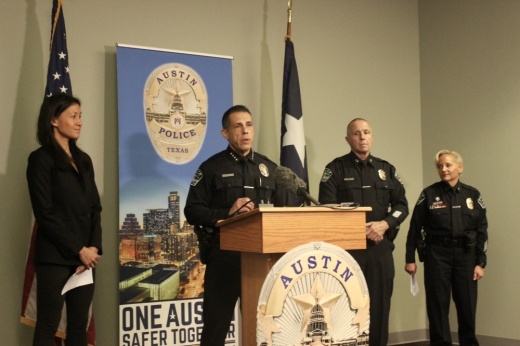The academy's trial reopening comes after months of extensive assessments of APD training practices, curriculum and leadership both within the city and from outside consultants and community members. In approving the commencement of APD's 144th cadet class in May, city officials also said the academy restart will be provisional with continuing input from city residents and independent evaluator Kroll Associates expected to shape the instruction of current cadets and future classes.
“This class represents a significant shift in the way that we conduct our cadet training, moving from a military or paramilitary-style environment in our academy into one that is resilience-based, that is grounded in active learning components and an adult learning environment," Interim Police Chief Joseph Chacon said. "What we want to do in all of this is to look at our deescalation techniques, how we are communicating with people, that we are effectively explaining ... our procedural justice and installing the tenets of that from the ground level here at the academy to make sure that we are treating people with dignity and respect."
APD leaders said they aim to graduate all 100 enrolled cadets as new police officers next January, following the more than eight months of training that is leading off with two weeks of "Community Connect" programming to engage cadets—many of whom are not city natives—with the Austinites they could soon be serving.
During a June 9 press conference, academy leadership repeatedly pointed to participation from and accountability to the Austin community as fundamental aspects of the redesigned program. That component of the new academy was a top concern for several city residents and Reimagining Public Safety Task Force representatives who publicly commented on the 144th cadet class this spring, and one the academy's civilian division manager Anne Kringen said instructors have been most dedicated to leading up to commencement.
Two committees centered on curriculum and video review are now expected to regularly meet and provide recommendations for change as training rolls on, a new auditing process Kringen said academy leaders are "constantly" working on.
"We want to make sure that we’re taking their recommendations seriously and that we’re incorporating them in how we view not just video but curriculum generally," she said. "We feel strongly that these are really good first steps, but we also have other ways through the community engagement hours as well as really involving our stakeholders. ... We really want to make sure we’re thoughtful in how we get feedback, and then holding ourselves accountable for what that feedback is."
Another change planned for this year's academy is a broader focus on issues relating to diversity and inclusion through both instruction and the makeup of the cadet class. In addition to specific courses and sessions on the topic of diversity, such as the Joyce James consulting group's "Groundwater Analysis of Racial Inequities" workshop, Chacon also highlighted the enrolled trainees themselves as a key part of APD's strategy to more closely reflect Austin's own population.
"This is the most diverse academy class that APD has ever had," he said. "Overall, 57% identify as non-white, and that is amazing. That is what we were striving for; we were getting out, we were actively recruiting minorities because we need for our department to reflect the community that it serves."
Evaluation of APD's management of its 144th cadet class will continue throughout the academy, with an independent evaluator on hand to oversee the first week of community engagement followed by regular review committee sessions continuing all year. Cadets will move into dedicated training June 21, and the class is now scheduled to graduate on Jan. 28, 2022, before moving into their official roles at APD.





